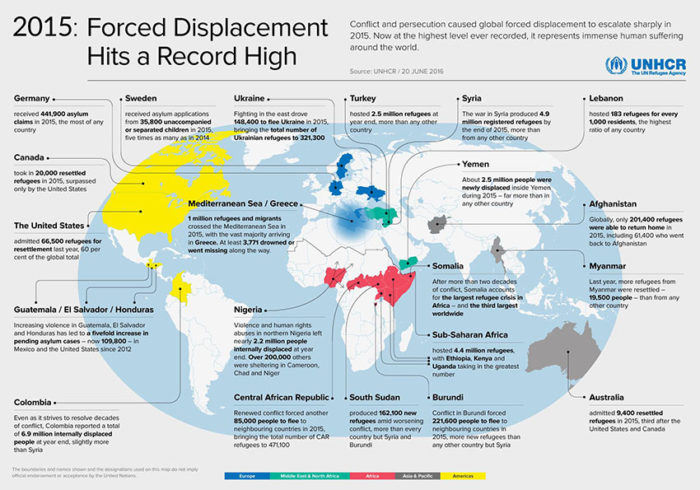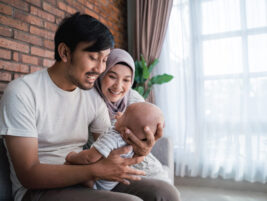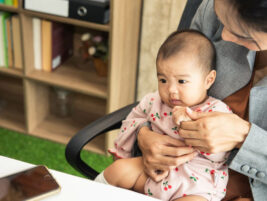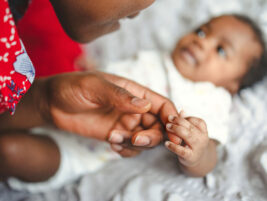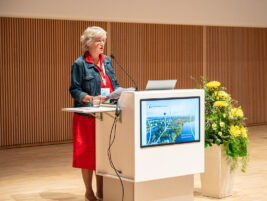The United Nation Children’s Fund (UNICEF) published its 2016 report on the state of the world’s children, under the title “A Fair chance for Every Child” (United Nations Children’s Fund, 2016). The report focuses on child education, children living in poverty, and pathways to equity. From the data presented, UNICEF’s executive director Anthony Blake concludes that although “the world has made progress in reducing child deaths, getting children into school and lifting millions out of poverty”, (p. VII) millions of children’s lives are still blighted, “for no other reason than the country, the community, the gender or the circumstances into which they are born” (p. VII). Without an extensive developmental turnaround, by 2030 – the deadline for the Sustainable Developmental Goals – every year 3.6 million children are likely to die before reaching their fifth birthday. Children in sub-Saharan Africa will be 10 times more likely to die before age 5 than children in high-income countries. Nine out of 10 children living in extreme poverty will live in sub-Saharan Africa. Sixty million primary school-aged children will be out of school (more than half will be from sub-Saharan Africa), and some 750 million women will have been married as children.
Two important factors may lead to a rise in mortality for the under-fives (in contrast to the declining trend of the last 15 years): political conflicts and war, and climate change. According to the UN Refugee Agency UNHCR, at the end of 2015 there were 65.3 million forcibly displaced people worldwide (for details see figure UNHCR Global Trends 2015), including 21.3 million refugees forced to flee from their countries (UNHCR). Half of them are children. “The number of children experiencing prolonged and complex disasters, such as the conflict in the Syrian Arab Republic, is growing. The intensifying effects of climate change are also exacerbating the risks to the most disadvantaged children. Globally, more than half a billion children live in zones where the occurrence of flooding is extremely high, and nearly 160 million live in zones where the severity of drought is high or extremely high. The World Health Organization has projected that approximately 250,000 additional deaths will occur annually through 2030 from malnutrition, malaria, diarrhoea and heat stress attributable to climate change.” (UNICEF p 4/5)

UNICEF proposes a wide variety of measures to improve the situation of children worldwide. Forty per cent of neonatal deaths could be averted through key interventions around the time of birth: skilled birth attendants, emergency obstetric care, immediate newborn care (including breastfeeding support and clean birth practices), and newborn resuscitation (p. 21). The benefits of breastfeeding are still under-recognised in many countries. Starting within the first hour of birth, longer-duration breastfeeding is associated with protection against childhood infections, increased intelligence, and reductions in the prevalence of overweight and diabetes. Research found that if breastfeeding were scaled up to near universal levels, the lives of 823,000 children under age 5 would be saved annually in 75 low- and middle-income countries (Victora et al., 2016).
When reading all this information and numbers I start to wonder: should we advocate for the worldwide improvement in infant mental health at times when the battle for sheer survival and physical growth of the youngest inhabitants of our planet has not yet been won? Around 1 million refugees arrived in my country in 2015, a high percentage of them young children. A large proportion of these children have lived under traumatising conditions for most of their lives, with significant risks to their mental health development, especially if they are under five. If we look at the terrible situations of refugee families on the borders of the European Union, in the boats on the Mediterranean Sea, or in Australian immigration detention facilities, we might think: survival and physical integrity comes first, so let us worry about infant mental health later. But is this hierarchy of action justified?
Each mind lives in a body; the survival of the body without a healthy mind causes tremendous suffering. A healthy mind is essential for human development. As early as 1945, Rene A. Spitz (Spitz, 1945) provided overwhelming evidence that body and mind cannot be separated from each other, especially in infants. Infants who spent their first years in foundling homes in which they were cared for by an inadequate number of nurses showed all the manifestations of “hospitalism”, both physical and mental, and had a high rate of mortality. Even though hygiene and precautions against contagion were impeccable, from the third month onwards the children showed extreme susceptibility to infection and illness of any kind (p. 59). The experience of relational deprivation had led to severe mental health deficiencies, which were associated with cognitive as well as physical shortcomings and mortality.
This knowledge, which is based on a massive amount of empirical data and clinical experience, must lead our efforts. It is not enough to provide at-risk children – for example, in refugee camps – with enough food and improved hygiene. In order to really improve their situation and to lay the ground for healthy growth and development we also have to focus on the mental and psychosocial conditions, especially during infancy. Early deprivation, growing up in the care of helpless or desperate parents, and chronic suffering from traumatisation leads to detrimental consequences not only for mental health, but also for physical health, moral development and social coherence. Infants who grow up under conditions of deprivation will be adults with difficulties in caring for the next generation and contributing to a fair society. They will suffer throughout their lives from a basic feeling of being short-changed, which can impede their empathic and mentalising capacities. Early mental health today is the basis for a fair and secure society in the future. So we should support the Sustainable Developmental Goals of the United Nations, but we also have to draw the attention of the public to the fact that survival and enough food are not sufficient. Without support and advocacy for the healthy mental development of the youngest, we will not make progress in the worldwide human condition.
In addition to “comprehensive interventions that cross development sectors to include nutrition, health, and water, sanitation and hygiene practices”, UNICEF proposes focusing “on the quality of care provided to infants and young children.” (…) “Comprehensive interventions that combine nutrition, protection and stimulation have been shown to produce marked gains in young children’s cognitive development.”(p. 42) A special edition of the Annals of the New York Academy of Sciences (Black & Dewey, 2014) indicates strong empirical support for early child-development programmes and the feasibility and effectiveness of integrating child development and nutritional interventions (p. 1). There is still a lack of empirical evaluation of the effects of adding support that stimulates early development to health and nutrition services (Grantham-McGregor, Fernald, Lia C H, Kagawa, Rose M C, & Walker, 2014). But addressing both physical and mental health in integrated interventions is probably the way we have to go in the future. And the earlier in the life cycle we intervene, the more effective and promising our efforts will be. WAIMH’s major aim, of promoting the mental wellbeing and healthy development of infants throughout the world, is therefore justified, precisely in times like these in which we increasingly have to face the struggles for children’s survival in almost every part of the world.
References
Black, M. M., & Dewey, K. G. (2014). Promoting equity through integrated early child development and nutrition interventions. Annals of the New York Academy of Sciences, 1308, 1–10.
Grantham-McGregor, S. M., Fernald, Lia C H, Kagawa, Rose M C, & Walker, S. (2014). Effects of integrated child development and nutrition interventions on child development and nutritional status. Annals of the New York Academy of Sciences, 1308, 11–32.
Spitz, R. (1945). Hospitalism. An inquiry in the genesis of psychiatric conditions in early childhood. Psychoanalytic Study of the Child, 1, 53–74.
UNHCR. Global trends: Forced displacement in 2015. Retrieved from https://www.unhcr.org/news/latest/2016/6/5763b65a4/global-forced-displacement-hits-record-high.html
United Nations Children’s Fund (UNICEF). (2016). The state of the world’s children 2016: A fair chance for every child. Retrieved from https://www.unicef.org/publications/index_91711.html
Victora, C. G., Bahl, R., Barros, Aluísio J D, França, Giovanny V A, Horton, S., Krasevec, J., . . . Rollins, N. C. (2016). Breastfeeding in the 21st century: epidemiology, mechanisms, and lifelong effect. The Lancet, 387(10017), 475–490.
Authors
von Klitzing, Kai, MD,
WAIMH President,
Germany


